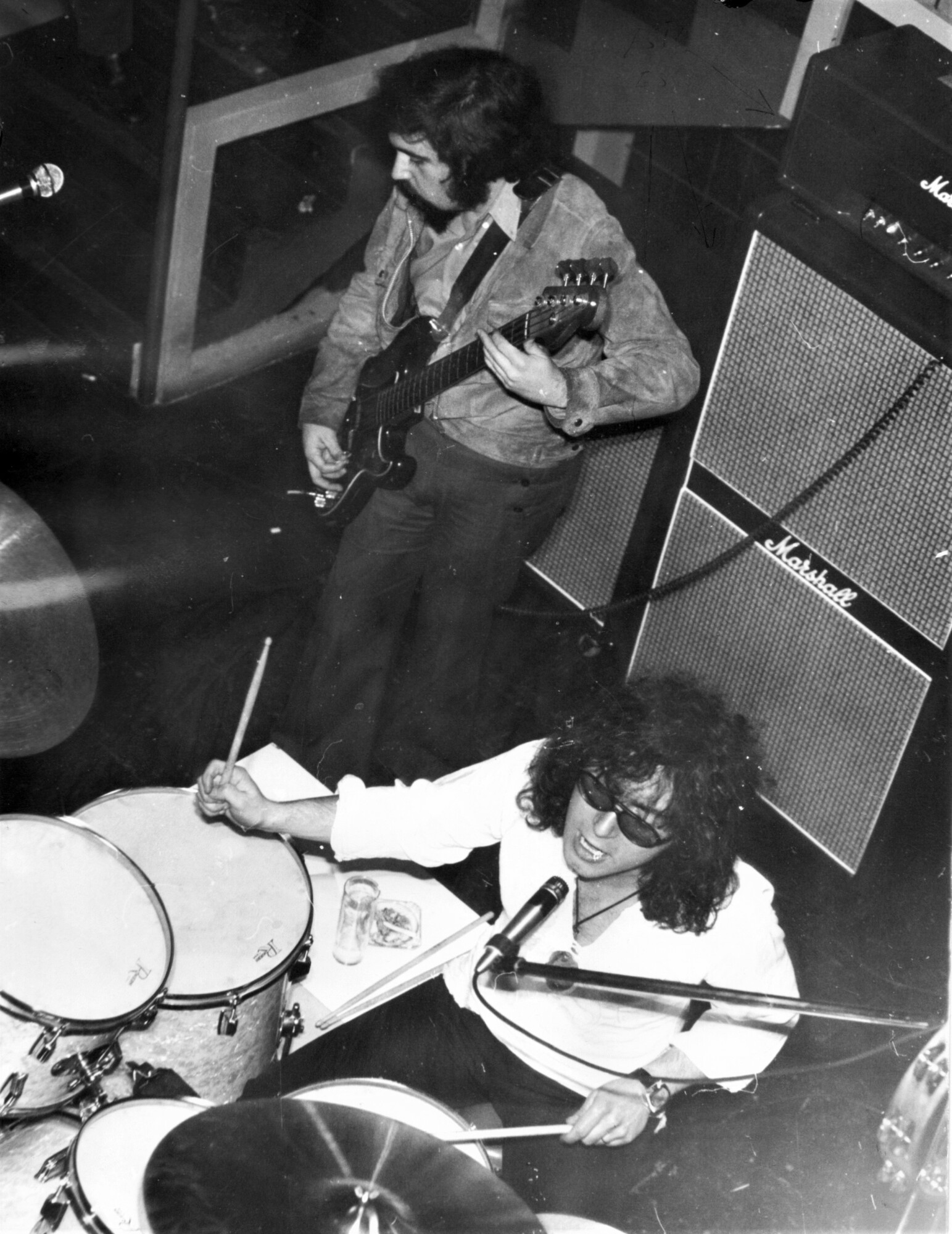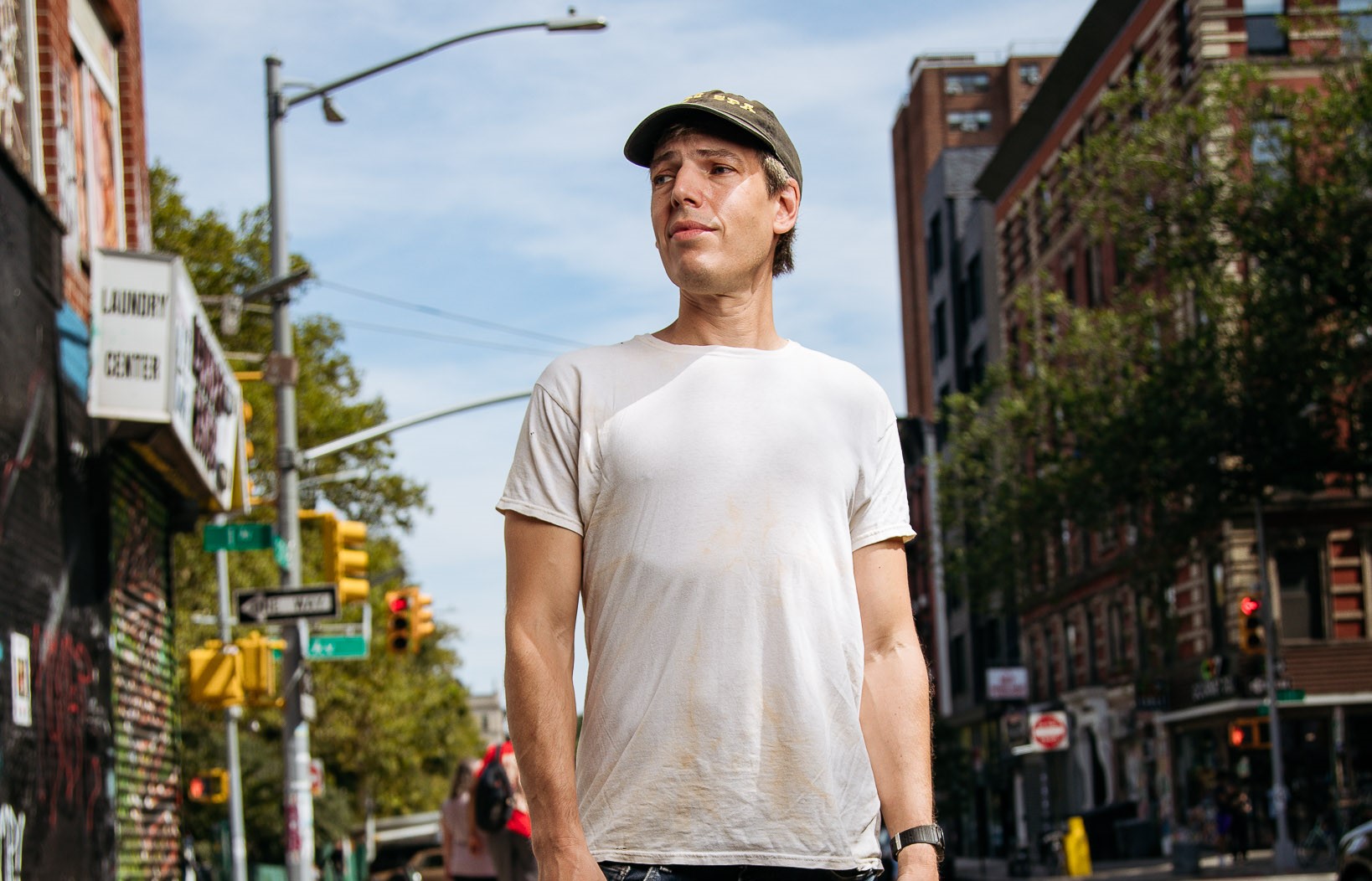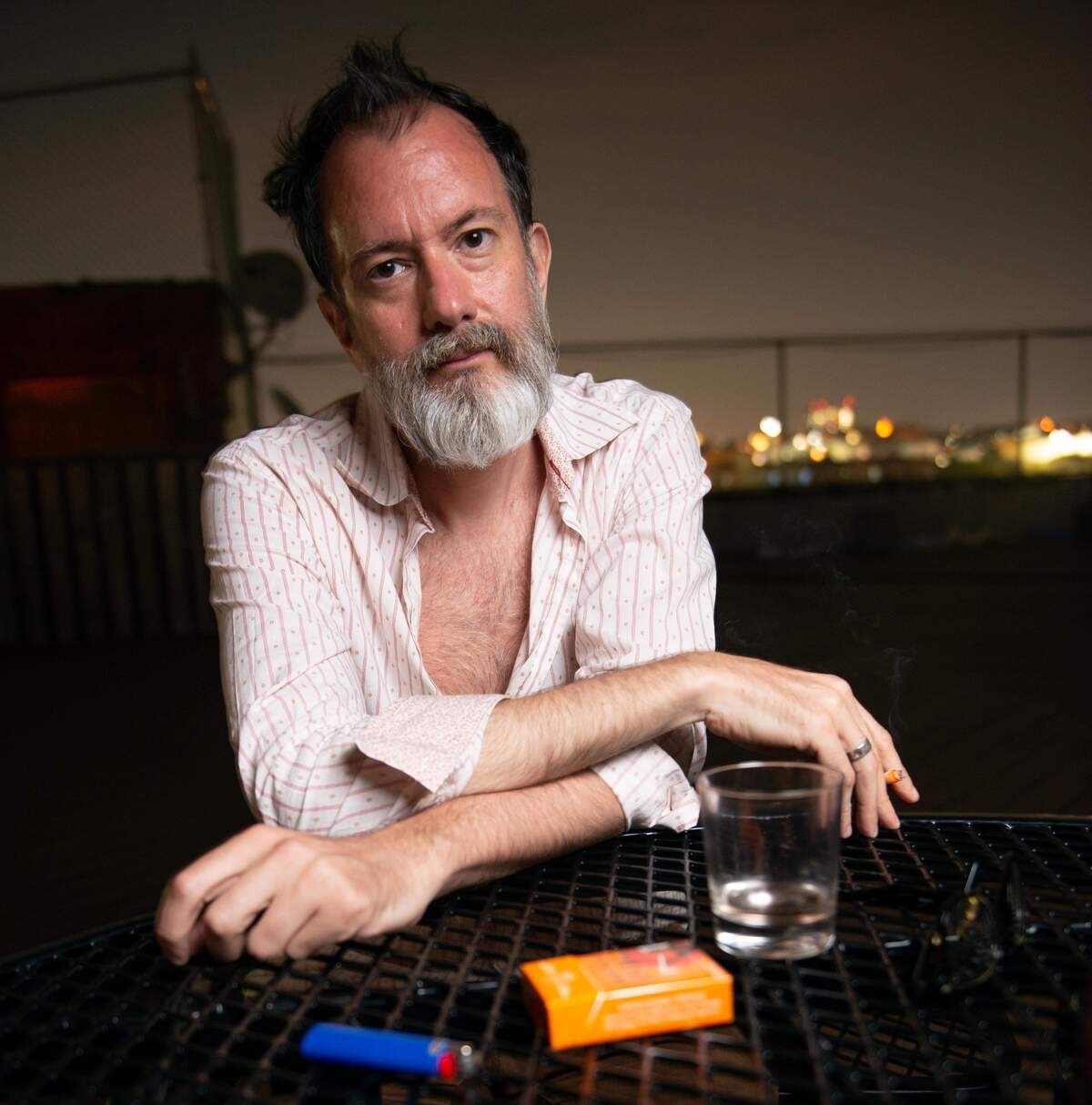Josecho Sesma l’Obelíx | Interview | Máquina!, Tapiman and Beyond
Josecho Sesma is a legendary Spanish bassist that began playing in the 60’s with beat bands and continuing in Los Moods, Grupo Om and in the 70s with Máquina!, Tapiman and beyond.
Although he decided to stop playing for almost three decades, he continued in bands like Deonliguan, Trespassers, Líquido Queen Trío, Reditio and The Perfect Strangers. He’s currently working on a new album with Abogados Del Ritmo.
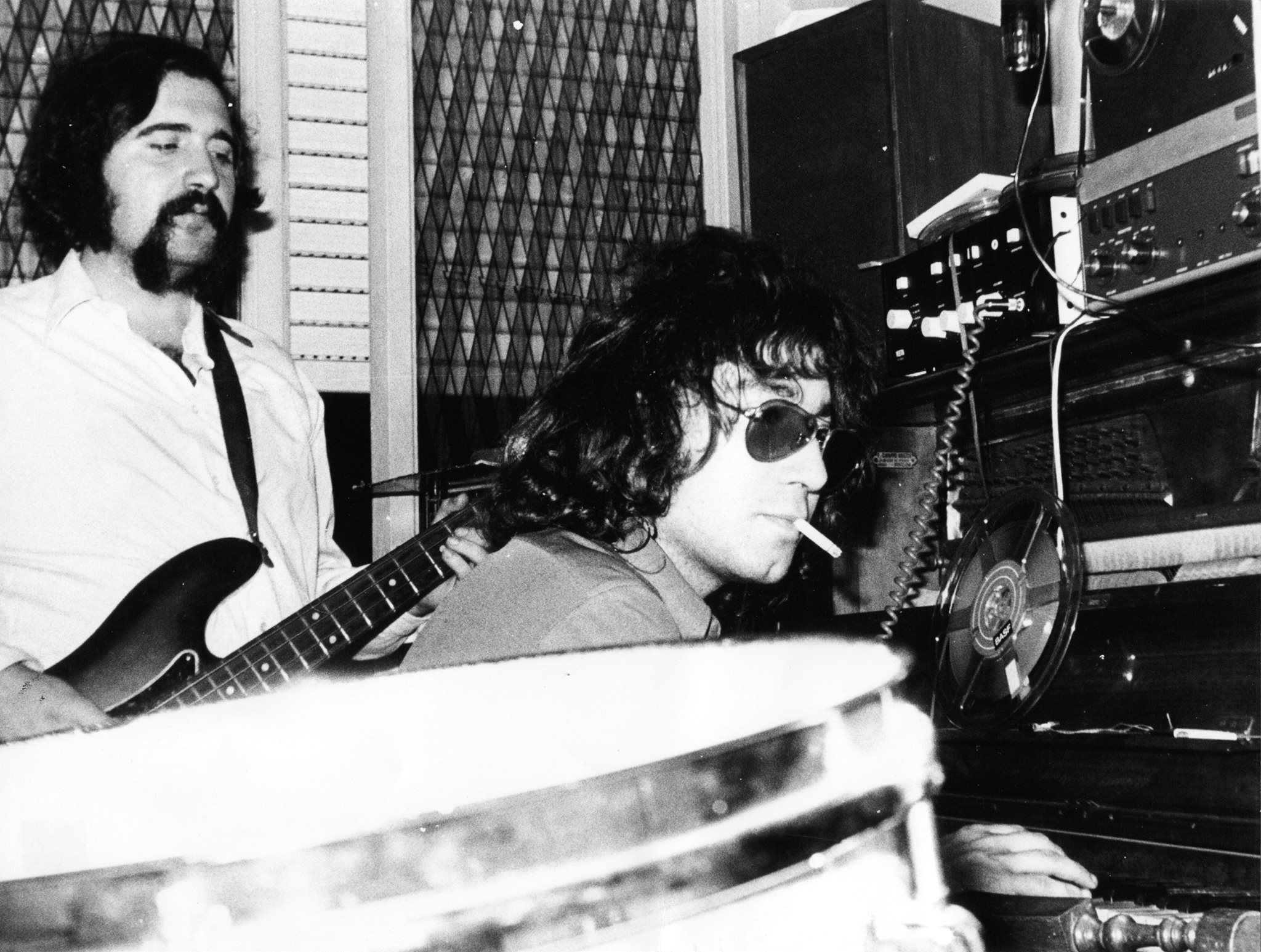
The newly remastered edition of your 1971 records by Guerssen is fantastic. What runs through your mind when hearing it again after so many years?
Josecho Sesma l’Obelíx: Yes, it’s great listening, although at the time I wasn’t in the band yet. It’s to see this out.
Do you still own any of the master tapes of Tapiman?
No, Josep María Vilaseca Delgado (“Tapi”) got them, but unfortunately he passed away in 1994.
Growing up in Spain back then must have been quite a struggle for a rock music lover like you.
Those were difficult times, you know. We were under a dictatorial regime with Francisco Franco and everything new was against the regime and so forbidden. We were not seen by the authorities as any good. Anyhow a lot of people felt we were breaking the political situation and helped us.
What were some of the very early beat bands in your country?
There were Canarios, Henry and The Seven, Los Cheyenes, Lone Star, Los Salvajes, Pop Tops, Franklin.
How did you get new records back then? Did you also listen to radios like Radio Luxembourg to hear new stuff?
We were listening to radio, like for instance Radio Luxembourg and other radio stations from abroad. You see, censorship here was really strong and most of the Spanish radio stations taped music from other pirate stations as it was difficult to get records.
You were part of quite some bands including Los Rebeldes and Los Condes. What kind of music did you play? What did your song repertoire consist of?
We played songs of famous bands of that time, Spencer Davis Group, The Kinks, The Who. This was my second band and after that I joined Los Condes.
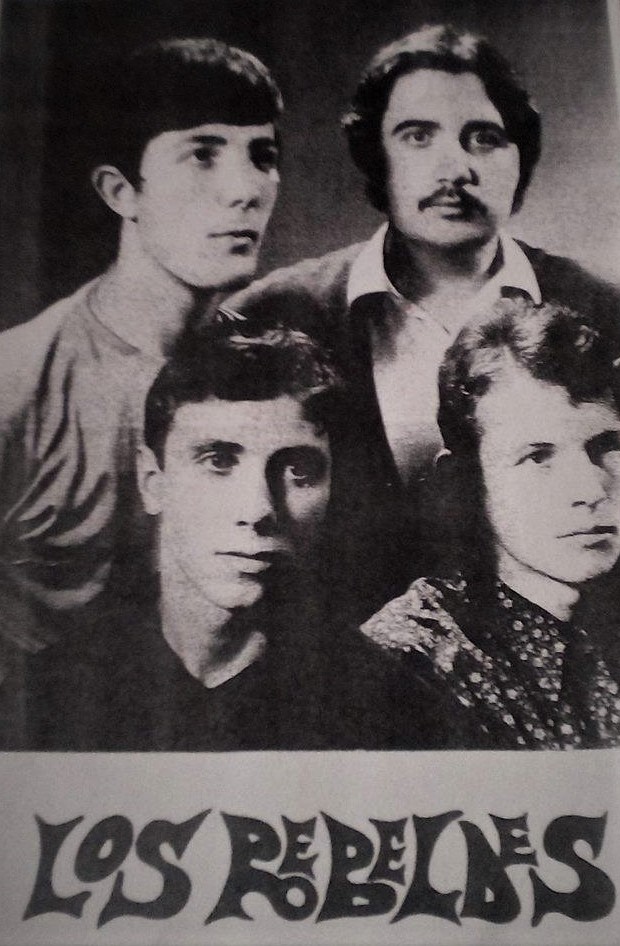
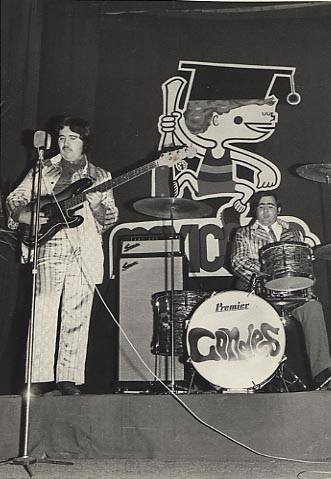
Did Los Moods record anything?
I joined Los Moods when Spanish guitarist Pablo Weeber, who began his career in Shelly Y Nueva Generación in the late 60’s and Franklin in the early 70s, asked me to form a band with him. Later he joined a German band called Hoelderlin. Nothing was recorded, because we were so different and because of the strict censorship. We were doing a lot of improvisation. I think this was around 1968.
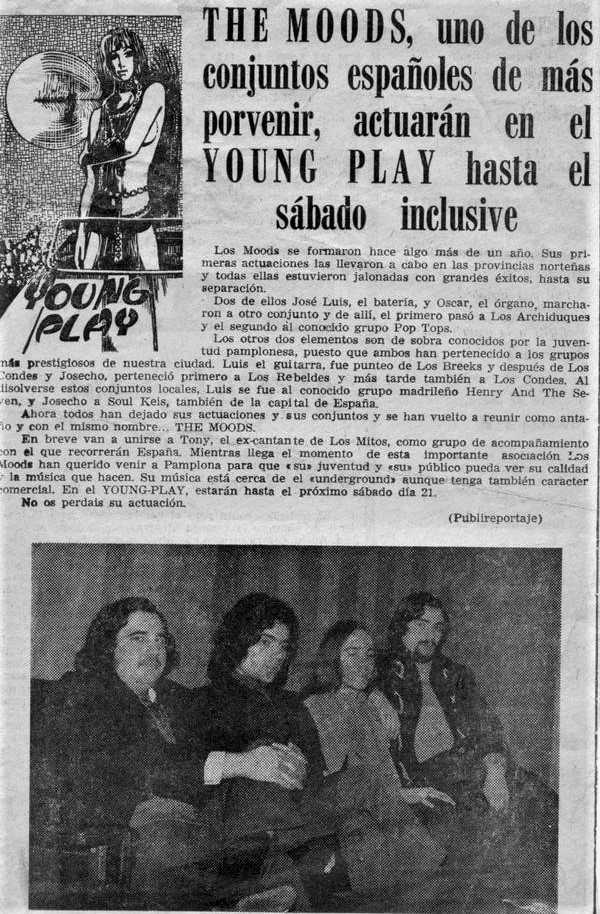
Tell us about joining Grupo Om, an incredible jazz fusion band consisting of Toti Soler and Peter Hodkingson. What did Peter Hodkingson do in Spain at the time?
In 1970 I went to Barcelona to join Máquina!. While the bass player was in compulsory military service, I started recording in Estudios Gema and I met Jordi Soler. He invited me to join the band. We were three musicians; Toti Soler on guitar, Peter Hodkingson on drums and me on bass. Peter Hodkingson was working with a very famous Spanish postmodernist architect, Ricardo Bofill.

Did you play on their second album?
No, I wasn’t playing with them then.
What was the songwriting like in the band?
Most of the songs were made by Toti Soler.
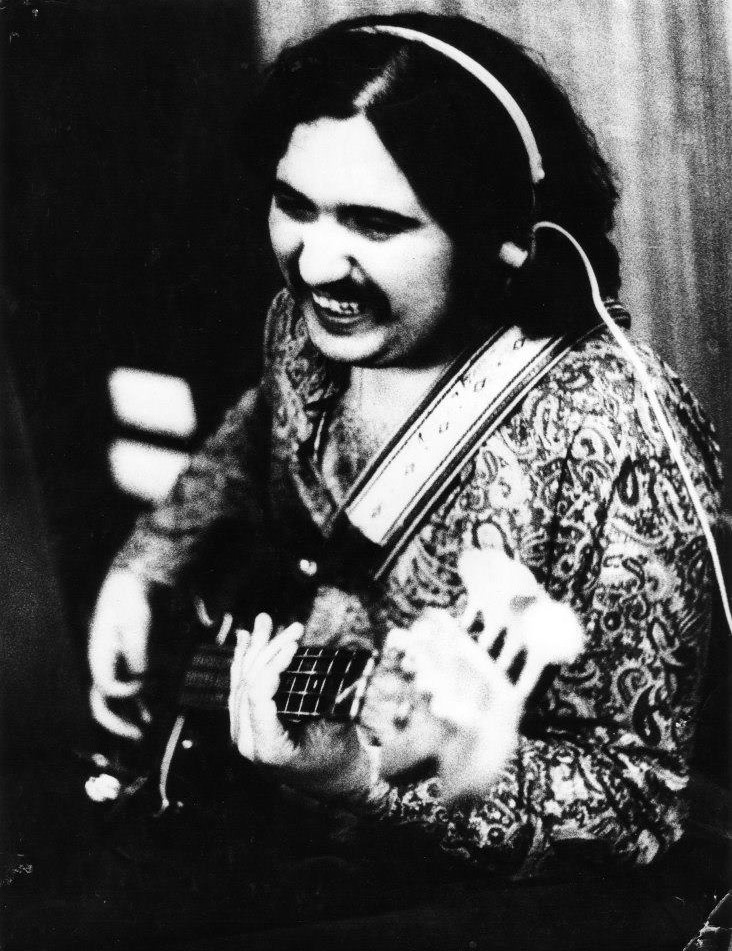
Who was Joe Skladzien?
Joe Skladzien was an American singer, guitar player and harmonica player who was in Spain in those years. I think, as other young Americans trying to avoid the Vietnam war. There were a good deal of them in Barcelona. He recorded a single here and we were playing for some time and rented a house together.
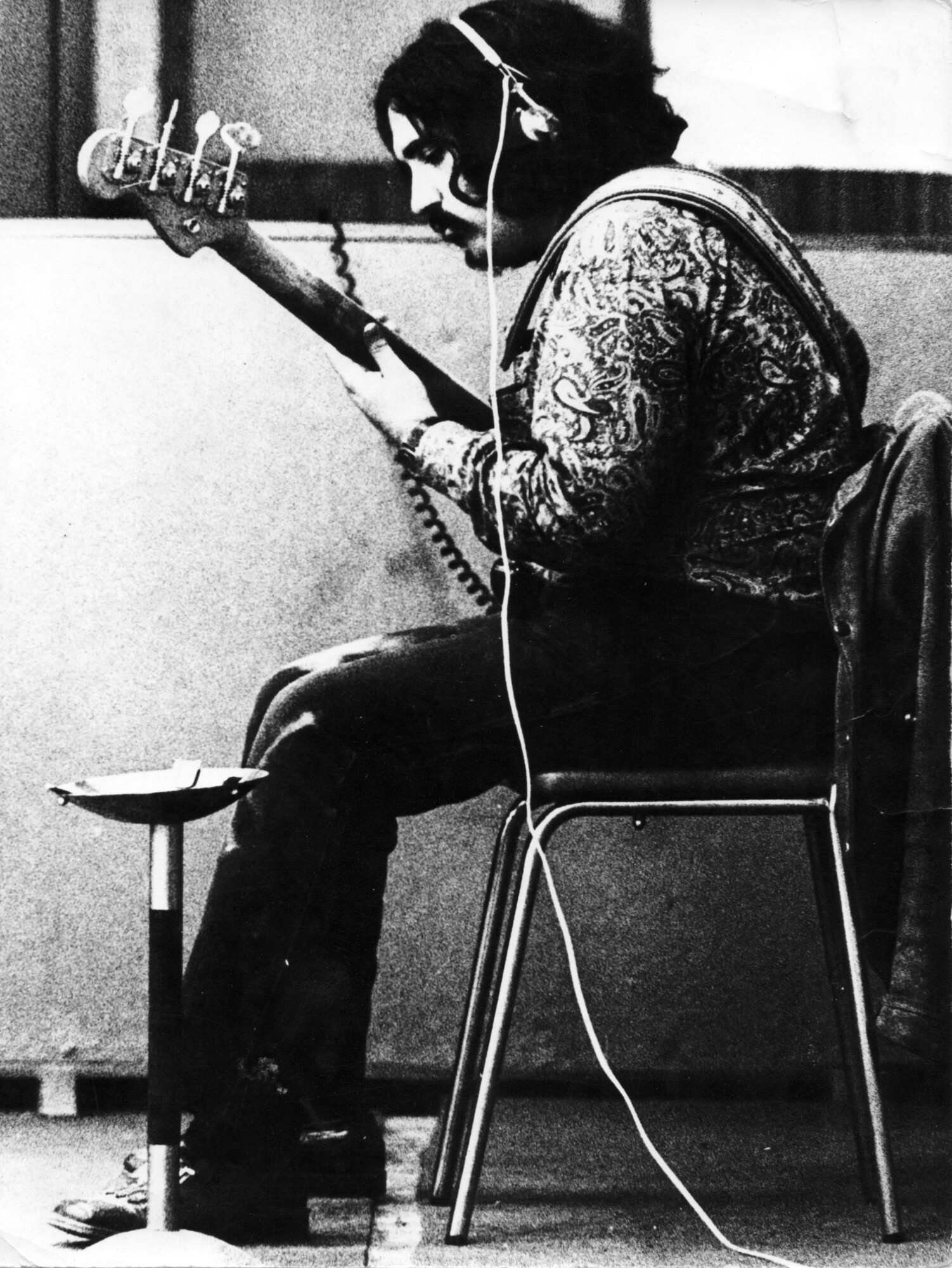
You actually spent some time with Taj Mahal, a blues legend. What was he doing in Spain?
Right, we were living together in a house. Joe Skladzien, Tom, a Canadian painter and I had rented in La Floresta Pearson. That was a beautiful place in the mountains near Barcelona where many artists, musicians, writers, painters lived. I think Taj Mahal came to Spain because he was disappointed with his recording company. Overall a great human being and a great musician who touched me with his playing and I learned a lot about blues from him.
Did Clan Zero record anything? What kind of material did you play? Was there a certain concept behind it? Who were other members?
Clan Zero, as many other bands, didn’t record for the same reason I told you about Los Moods. They were a great band! Agustin Ferrero (Hammond and singer, great keyboardist and one the best voices I have ever heard), Ricardo Martínez (guitar player, when he finished the military service went to France and join Johnny Hallyday, a famous French singer) and Florencio Lavaca (perhaps the most powerful drummer I had played with). Most of the repertoire consists of our own songs, playing hard rock, blues and some jazz. We were way ahead of our time in Spain.
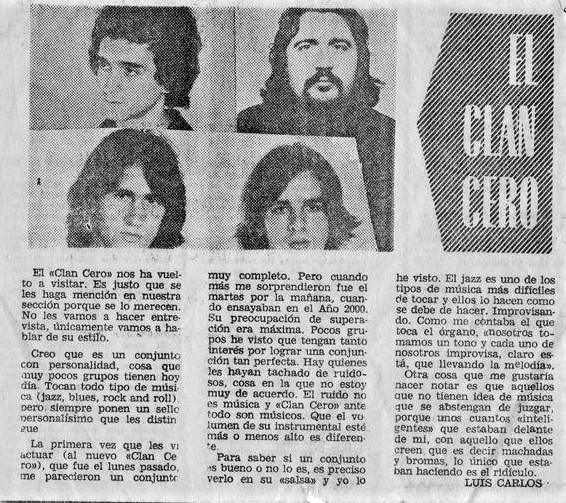
When did you become a session bass player?
In Barcelona in 1970 I worked for three years recording with Jordi Sabaté, a great piano player and considered one of the best jazz piano players in my country. Later he went to teach in the USA, he died some months ago, but there we record all kinds of music. It was a fantastic time.
What can you tell us about Josep María Vilaseca Delgado (“Tapi”), what was he like?
Tapi was a great drummer, composer and, above all, a great person. Very funny, cheerful and a good friend and he was very serious about his musical work.
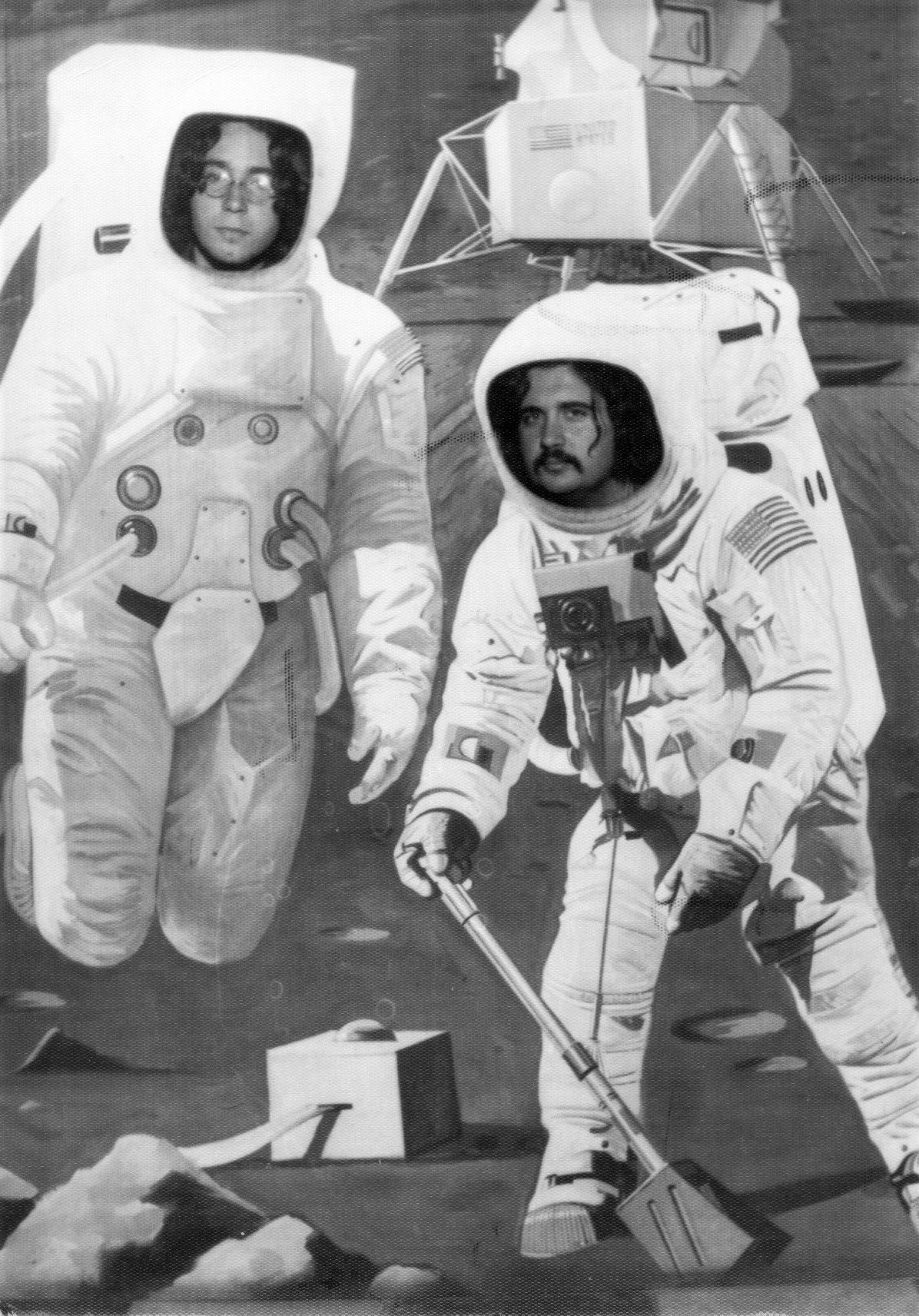
You joined his band Tapiman in 1973? Who were the musicians in the band back then?
Yes, I joined Tapiman in 1973. The members of the band were Tapi on drums, Toni on guitar, Pablo Weeber on guitar, T.J. Brown on Hammond organ and me on bass and we recorded a single ‘Traveller Man’. In April 1973 our record label sent us to Madrid to record a TV program for the release of our new single ‘Traveller Man’ as we would do some concerts, our producer did not like it and convinced half of the band (guitarist and keyboards) to stay in Barcelona, while Tapi and I had left by train to Madrid. The rest of the band were supposed to come in the van. We found ourselves both alone and without equipment in Madrid, thanks to Pablo Weeber and Mariano Díaz (guitarist and keyboardist of Franklin) we were able to fulfill the contracts.
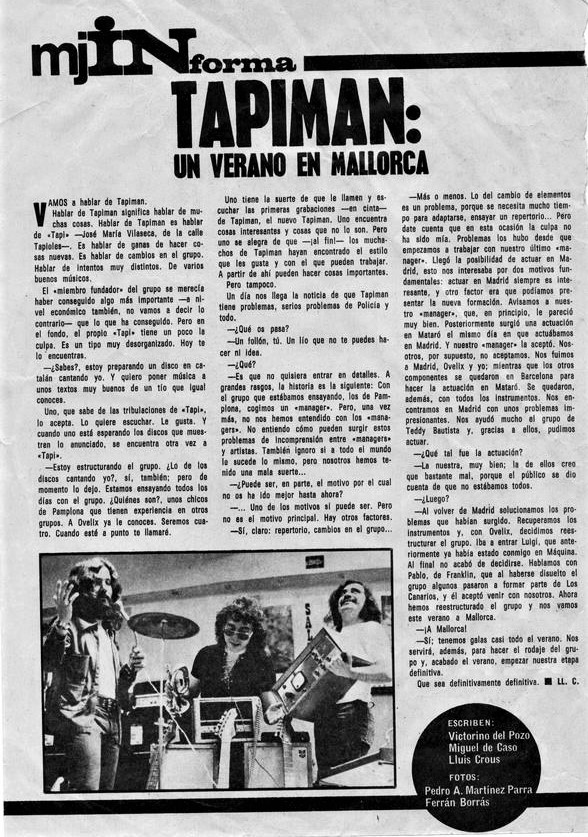
I remember that one was at M&M, the performance could not be made on TV, among other reasons because the author and singer was T.J. Brown stayed in Barcelona. We were helped at all times by Teddy Baustista, then in Canary Islands, our producer tried by all means to abandon Tapi there, even sent me to the hotel a plane ticket to Barcelona, but one is faithful to his friends, on the way we had problems getting our instruments back, complaint included, and the band split.
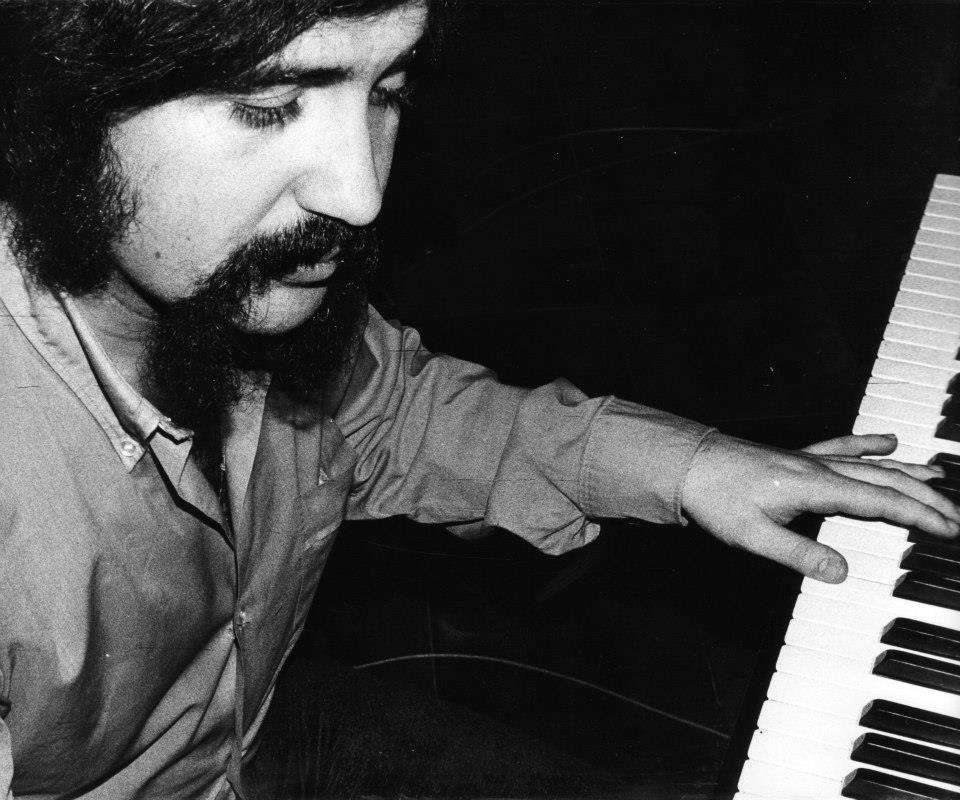
Tapi and I was accompanying singers for a while, we tried to follow Tapiman with the incorporation of Pablo Weeber and Tony (of Evolution), but Tony’s militia and the little work there was for progressive rock groups made the third formation of Tapiman disappear. I stayed friends with Tapi. I never understood the behaviour of our producer… I played in Tapiman for 8 months overall.
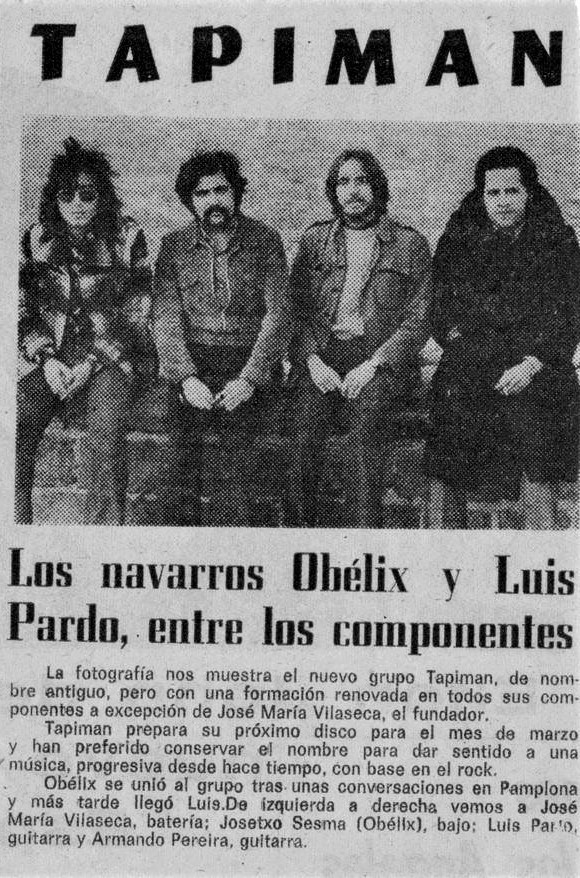
How did Tapi get in touch with Lone Star? Pablo Weeber ended playing in Germany with Hoelderlin for about a year.
When Tapiman disbanded, Tapi got in touch with Lone Star since they were looking for a new drummer. Pablo Weeber gathered members of Franklin again and they recorded one album, ‘Satisfaction’ and one single (‘What is Wrong’). When the band ended, he got back to Germany and joined Hoelderlin.
What followed for you?
Times were difficult for the rock musicians at that time, changes were coming in my country and people were more interested in political songwriters so one must look for work in other styles of music. I kept on recording, playing with famous singers, nothing to do with rock music. For instance I was playing with Antonio Machín, a famous Cuban singer, or Marujita Diaz, a flamenco folklore singer and many others. I made good money but in the end I was musically burned and gave up playing since I felt nothing when I was playing. I was watching the clock in order to see when the show finished, I decided to give up playing and find another job and for 27 years I didn’t play a single note. I turned to photography as a freelancer in Asia. Then I married Mari Carmen and had a daughter, Paula, I lived for my daughter and when she started flying by herself I was deeply sunk. Then my wife gave me a present: a bass, my so loved, Yamaha BB414 on August 20th as my old Fender Precision Bass had been stolen. Since then I spent a lot of hours studying and to my surprise I remembered everything. In a very short time my fingers were even faster than before. Thanks to the internet, where you can find all possible tutorials on how to play different techniques. Then I realised I was playing much better than before and felt the strings vibrating under my fingers. I got more bass guitarist, “Double Ten,” a Fender Jazz Bass, Sixtiguan, another Fender Jaz zBass, in this case a fretless, Mesié Bongo, a Musicman Bongo and “29” Fender acoustic, but “20” is the special one, some people say it was haunted when I took it to the jams.
Would you like to tell us a bit more in-depth about how you first met Taj Mahal? And what was that like for you? After all, he was already a blues legend back then.
As I told you before I was living with Joe Skladzien and Toni in a small house near Barcelona, one day Joe came with Taj and told us that he had invited him to live at home. We were delighted, I spent a lot of time learning from him, and playing with Toti Soler and Peter Hodgkinson. Taj had problems with residence here and got back to the States.
What about Azabache?
A band with Jorge Flaco Barral, a great Uruguayan guitarist with whom I had the pleasure of playing and sharing friendship in 1972.
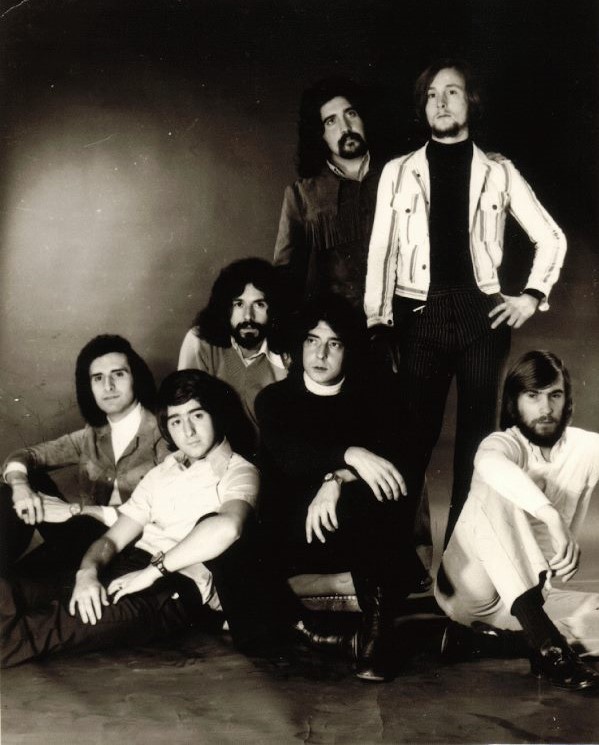
You’re still very active with Abogados Del Ritmo, a fantastic band that just recently released a new album. What’s the story behind recording it?
Yes, Eduardo Zamora, the guitar player and composer, had recorded an instrumental album then Antonio Cobo (drums) and I joined him to play those songs live. Later we made an instrumental band Abogados Del Ritmo and when the Covid pandemic arrived we kept on playing in the rehearsal room and found a female singer and recorded ‘Orden en la Sala’. Now we are preparing a new album, bass and guitars are recorded at home, drums and voices in the studio.
Would you like to share a few sentences about the bands like Deonliguan, Trespassers, Líquido Queen Trío, Reditio and The Perfect Strangers?
Deonliguan was the band I formed when coming back to the music. We recorded two albums (‘Maloccio’ and ‘Rock’n’Roller’). I enjoyed the band, we played our own songs, except for The Immigrant Song by Led Zeppelin, which we joined with one song we have called ‘California’.
Trespassers was a southern rock inspired band in the line of Lynyrd Skynyrd, most of the best musicians from my town formed this band.
There is a really good singer in town called Pablo Líquido. He loves Queen and called me to make the trio play the most famous songs of Queen. We even made a funky version of one of the songs. Líquido Queen Trío played all around Spain.
The Perfect Strangers was an Austrian/Spanish band and during 19 years were playing all over Europe, playing with Ian Paice in Austria. I joined the band during the last two years in Europe, great musicians. Peter Mayr on the keyboards, Ernest Grieshofer on drums, Luis Blanco on vocals, and Nacho De Carlos on guitar.
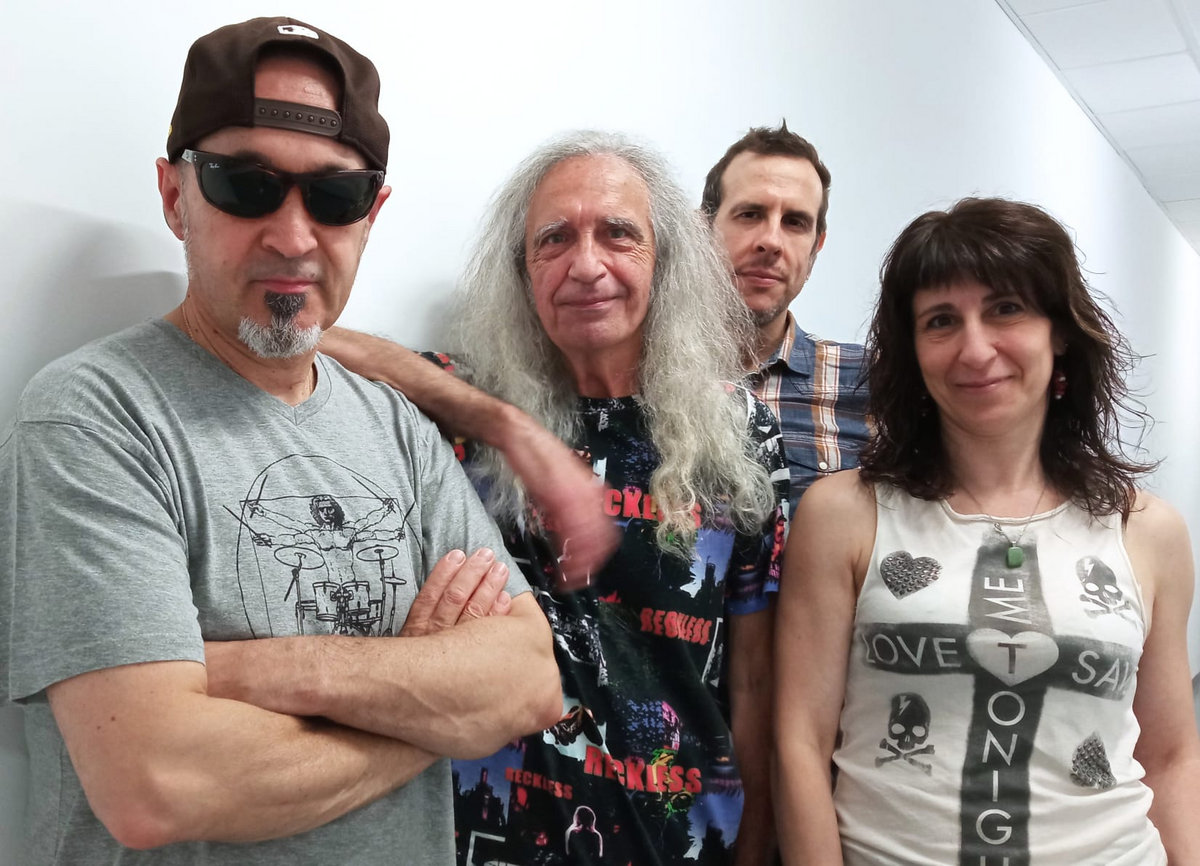
What are some of the most important players that influenced your own style and what in particular did they employ in their playing that you liked?
The first ones are Tim Bogert (Vanilla Fudge), Chris Squire (Yes), Stanley Clarke (Chick Corea) and my God Jaco Pastorius. All of them have a lot to do with the way I play, even though I have never tried to imitate anybody, I tried to be myself, I remember Taj Mahal told me, “You have your own style to play and keep on being yourself” and I always tried to be myself. It’s not easy and you get involved in discussions, but I prefer to play my way. I always say when some band calls me that I’m a free bass player. If not I would be a machine without a heart and I need my blood boiling when I’m playing.
Is there any unreleased material by Tapiman or any other groups that you would like to see released?
Yes, I would like to listen again to the single we recorded in 1973 with Tapiman (‘Traveller Man’) and from Canarios ‘The Four Seasons’ by Vivaldi, I think this one is one of the best recordings made in Spain.
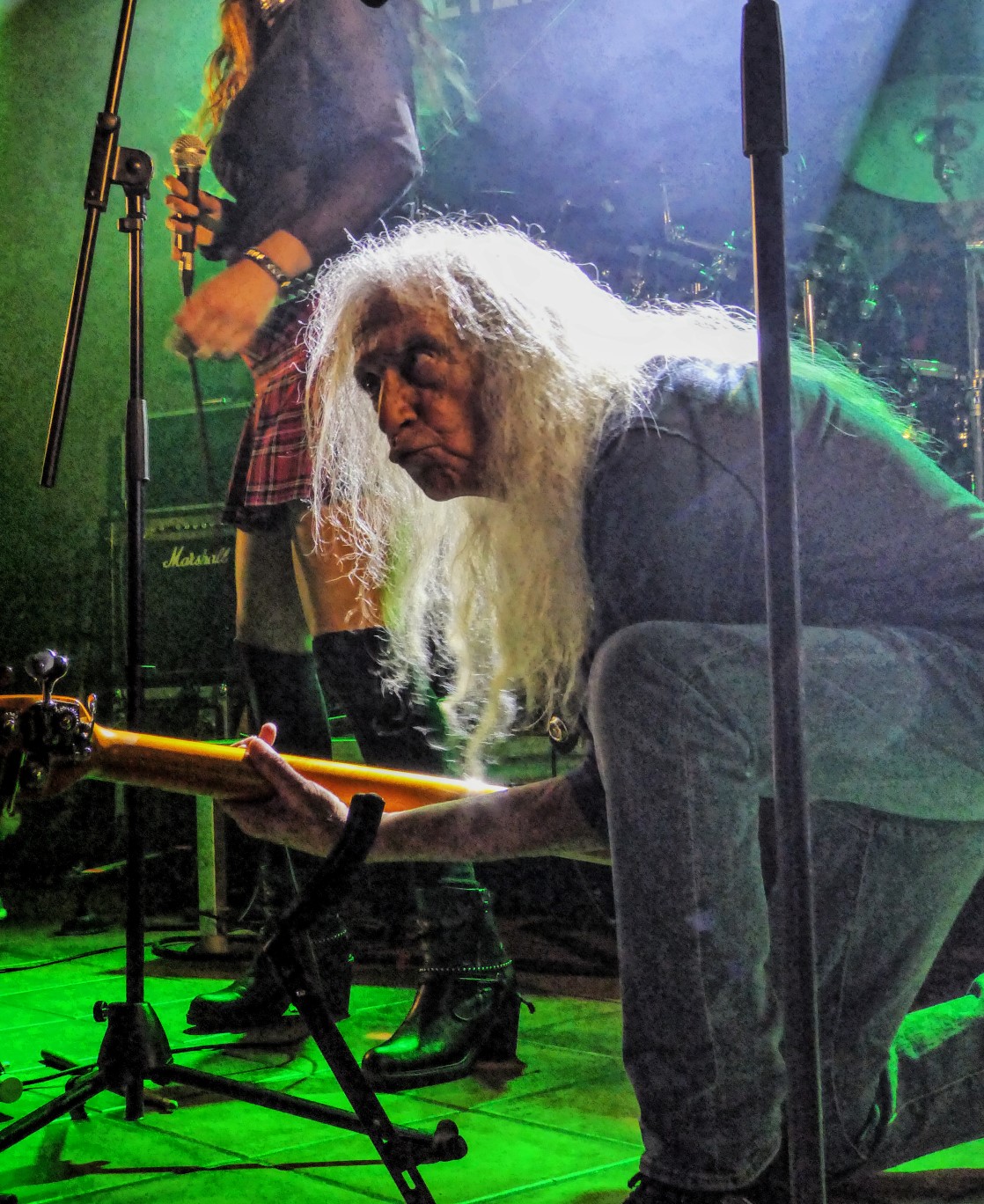
Thank you for taking your time. Last word is yours.
Thanks goes to you. I’m 73 years old and I keep on playing. I enjoyed the most part of my life, apart from my military service and the period when I played what I didn’t like, but I was a professional player and one had to make a living, the rest is more than OK. I had never pursued fame. For me the most important thing was to believe and feel the music I was playing. That was (and is) everything I care about, feeling the music and making others feel it like me, no matter if they are 50 or 50.000, they are the people who have come to enjoy my playing and I always respected and loved them and tried to do my best, for me, for them.
Klemen Breznikar
Headline photo: Josecho Sesma and Josep María Vilaseca Delgado (“Tapi”) (1973)
Josecho Sesma Facebook
Abogados Del Ritmo Facebook / Instagram / Bandcamp / YouTube

